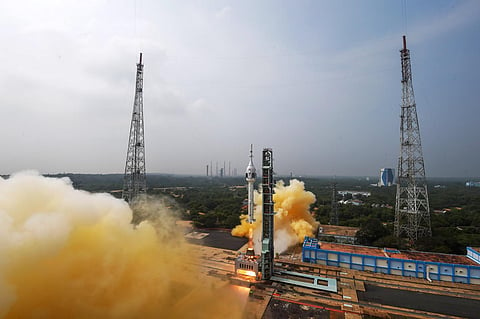

THIRUVANANTHAPURAM: In a major step to provide more thrust to strengthening India’s human spaceflight programme — the Gaganyaan Mission — the Indian Space Research Organisation (Isro) and Sree Chitra Tirunal Institute for Medical Sciences and Technology (SCTIMST) have signed a memorandum of understanding (MoU) to collaborate in the emerging field of space medicine.
The MoU was signed by Dr Sanjay Behari, director of SCTIMST, and Ganesh Pillai, scientific secretary at Isro, in the presence of Isro chairman Dr V Narayanan. The agreement marks a significant milestone in advancing space medicine research and its applications in India.
With its expertise in biomedical engineering and super-specialty healthcare, SCTIMST will work on studying health issues faced by astronauts exposed to microgravity and high-radiation environments. These include muscle loss, disrupted blood flow affecting organ function, sleep disturbances, and heightened risk of infections due to exposure to novel pathogens in space.
Dr Behari highlighted that platforms like the proposed Bharatiya Antariksh Station would serve as hubs for cutting-edge human research and technological innovation based on national priorities.
“This collaboration could also spark interest among youth to pursue STEM careers, thereby driving innovation,” he added. Dr Behari said SCTIMST is looking forward to a productive partnership with Isro in developing cleanroom and microgravity laboratories, co-developing biomedical devices, and adapting technologies developed for space missions for healthcare applications on Earth.
The partnership will focus on areas such as human physiology, behavioural health, radiation biology, biomedical support systems, telemedicine, communication protocols, and the development of space mission medical kits.